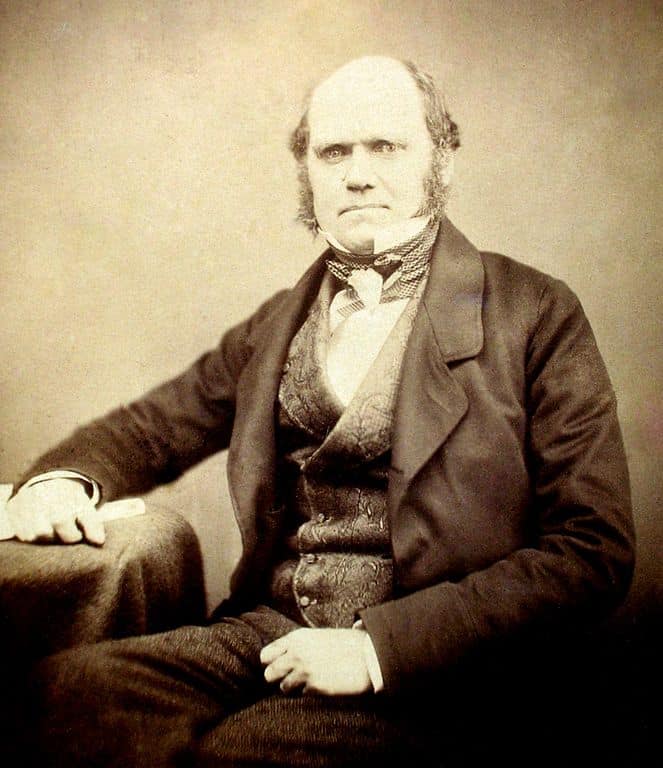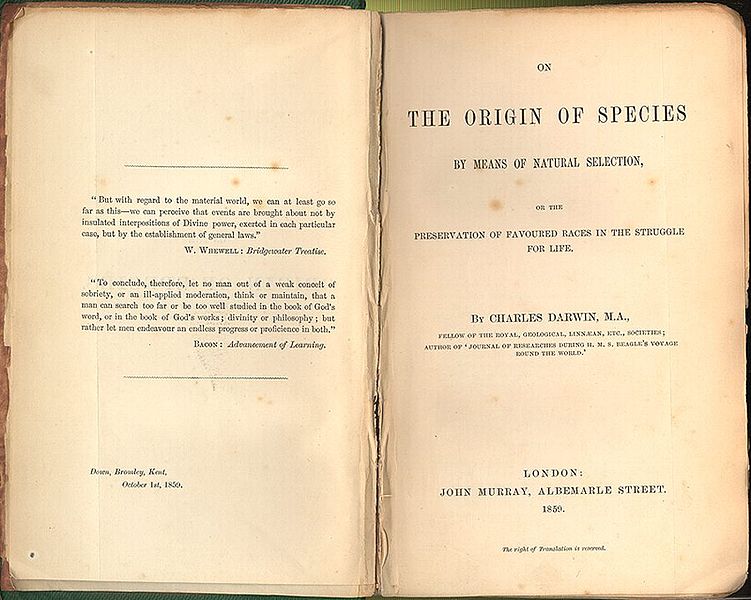Darwin was not the first to suggest that there was a relationship between man and other species. Nor was he the first to suggest that the earth and the creatures inhabiting it had changed, and were continuing to change, over eons of time. In 1844 a seminal work, Vestiges of the Natural History of Creation, was published in England, proposing the idea of the transmutation of species. The book was speculative in nature and written in a manner which made it easily read by those with no scientific training. It became popular within London society, though its content was attacked by conservatives within the Anglican Church, which at the time controlled the seats of higher learning in Great Britain.

Darwin was the first to propose the idea of the transmutation of species through the process of natural selection, presenting creation as an ongoing process. His theory was presented from observations made during the voyage of Beagle and subsequent experimentation, influenced by earlier works. With the publication of On the Origin of Species, Darwin generated a debate within the scientific and religious communities which continues to the present day. He was and remains reviled by some and lauded by others. Genesis or Darwin in school curricula remains a heated argument, which began shortly after Darwin’s work appeared. Here are some of the events following the publication of On the Origin of Species through Natural Selection.
1. The early reaction to Darwin’s work was muted

Darwin’s seminal work on evolution was released to the public on November 22, 1859, in Great Britain. The initial print run sold out, and Darwin began work on a second run almost immediately, with corrections and amendments to the text. He also added comments he received from an Anglican rector and novelist, Charles Kingsley, to the last chapter of the second edition. Kingsley had praised the original work, writing to Darwin, “if you be right I must give up much of what I had believed”. He added, regarding the act of creation, that it was, “…just as noble conception of Deity, to believe that He created primal forms capable of self-development”.
It was in the critical literary reviews that the subject of men descending from apes appeared, a theory which was not presented within Darwin’s work, though the inference could be clearly drawn. At the time, it was customary for literary reviews to appear anonymously, and behind that blanket many reviewers were scathing. The debate over Darwinism, as his theories were labeled by those opposing them, was in Britain part of the ongoing debate over separating the teaching of all branches of science from the control of the Anglican Church at the great seats of learning. A wholly different reaction occurred in the United States.

